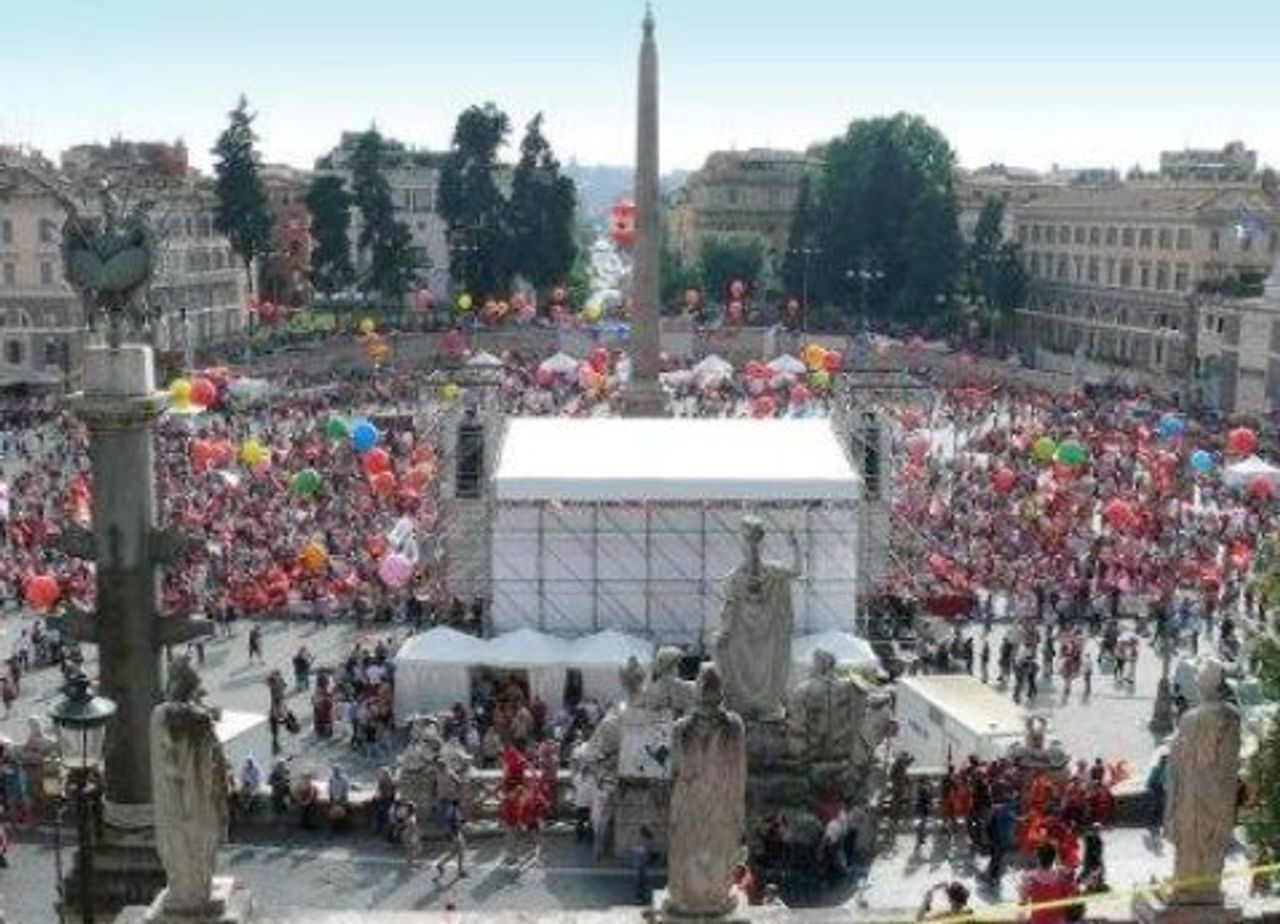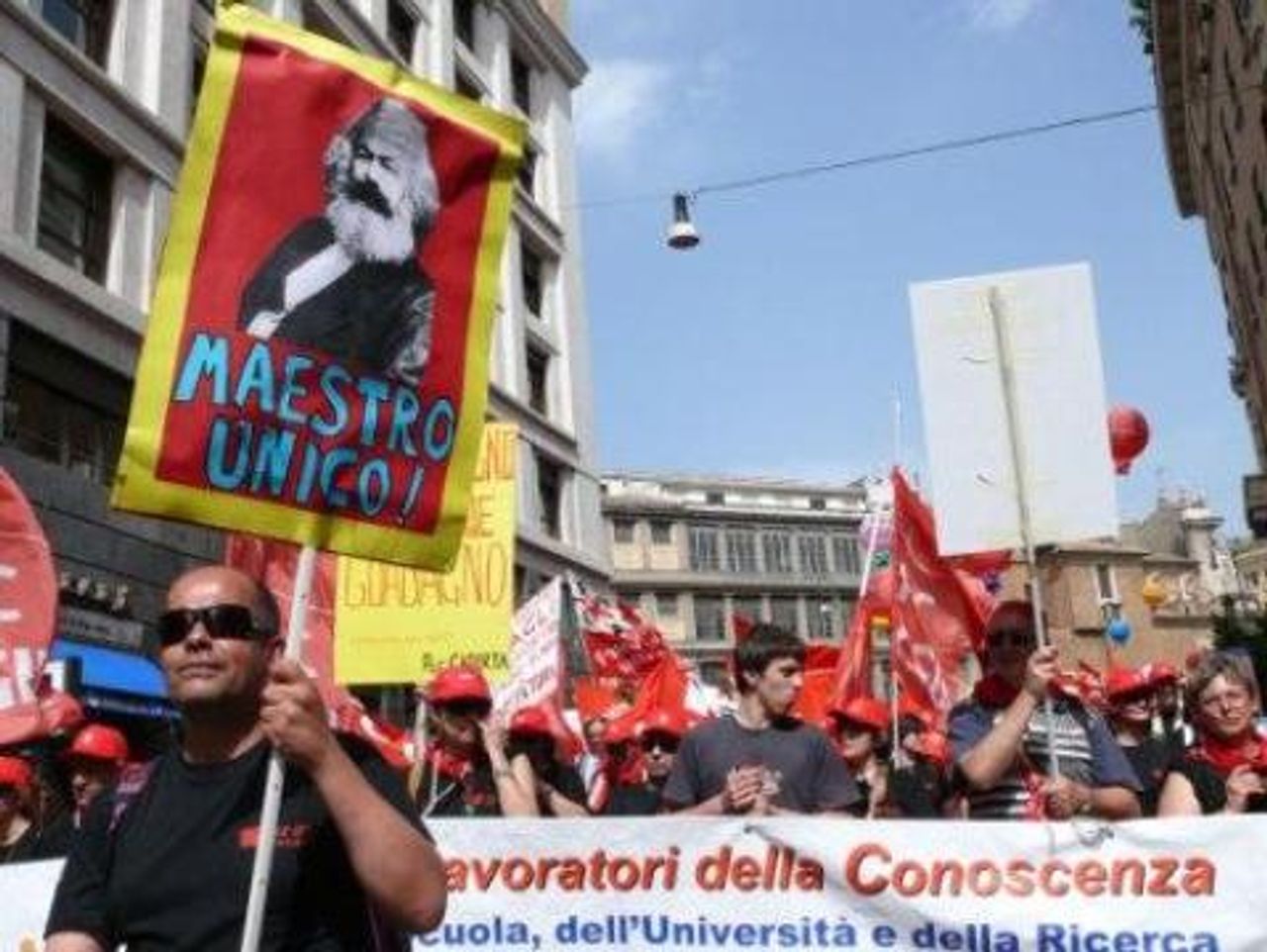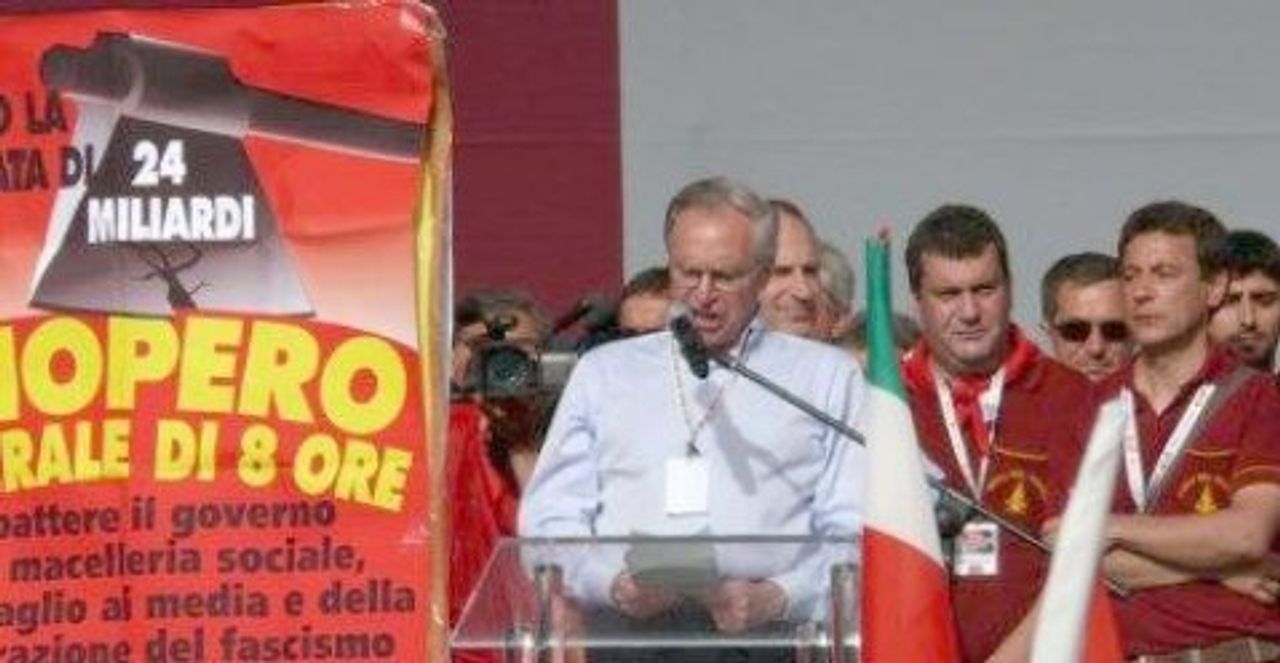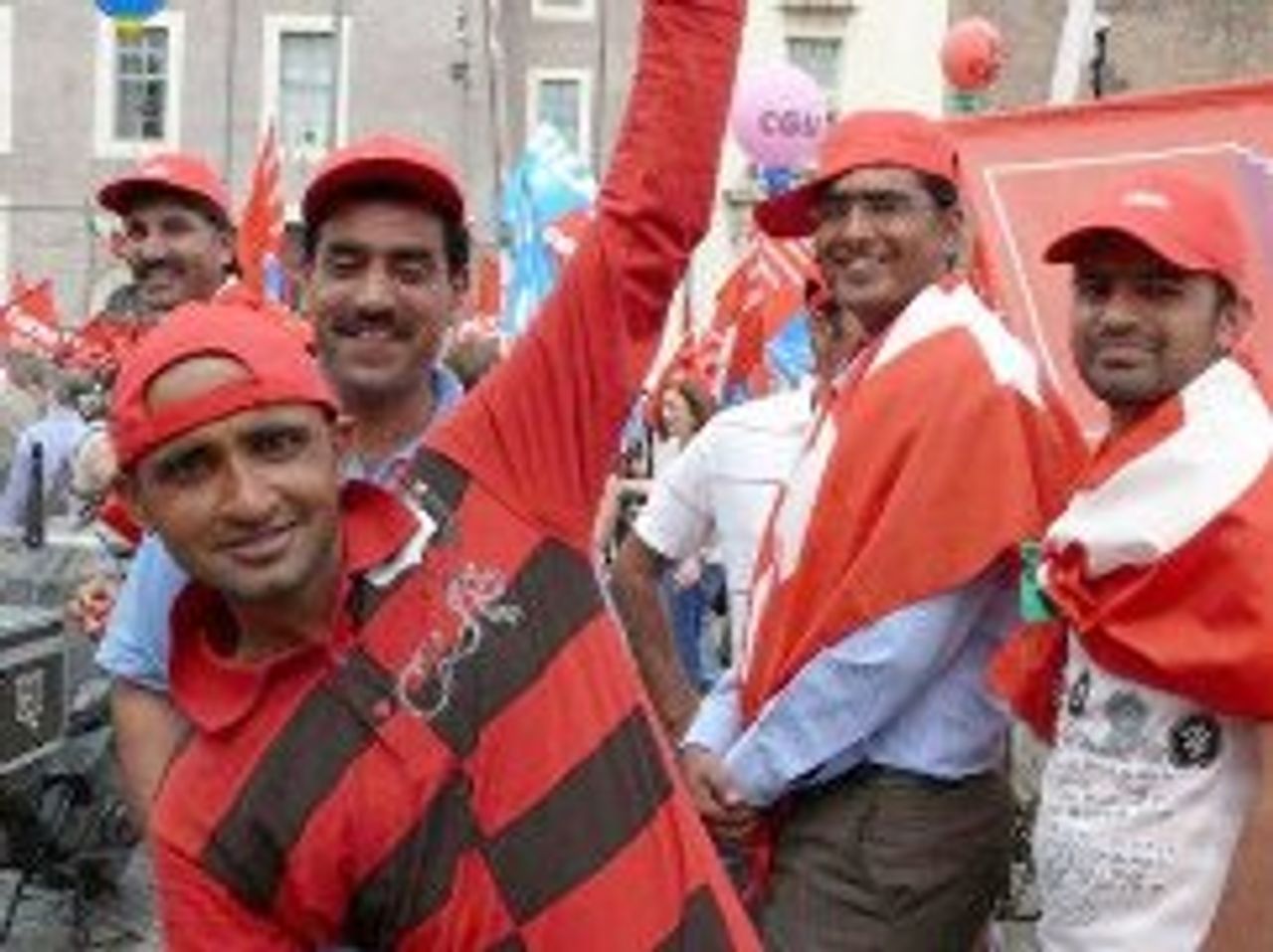 Demonstration on the Piazza del Popolo
Demonstration on the Piazza del PopoloThousands protested last Saturday in Rome against the recent austerity plans announced by the Italian government. The government of Silvio Berlusconi is seeking to cut public expenditure by nearly €25 billion over the next two years.
Hardest hit by the cuts are the health service, schools, universities and local administrations. Up to 400,000 jobs, mainly part-time and temporary, are to be slashed in public services while the salaries of those remaining in public service are to be frozen or cut. The government has also announced plans to once again increase the retirement age.
The dismantling of broad sections of public service is being accompanied by a huge attack on jobs and working conditions in private industry, such as at Fiat. The trade union bureaucracy fears a wave of social protests that they will be unable to control and the demonstration held last Saturday in Rome was a deliberate attempt by the unions to divert workers’ anger away from the government and political establishment.
The demonstration was organized by Italy’s biggest trade union, the CGIL, which was formerly close to the Italian Communist Party and now maintains close links to the Democratic Party (Italy). The demonstration was supported by the Democratic Party and was addressed by the party’s economic spokesman, Stefano Fassina. Also attending the protest were the Italy of Values party (Italia dei valori) led by the former magistrate Antonio di Pietro. Others in attendance included Communist Refoundation (PRC) and the PRC split-off, Sinistra ecologia e libertà (Sel) led by Nicchi Vendola.
A so-called general strike is planned for June 25 involving a 24-hour strike in the public sector and a four-hour strike in the private sector. The “alternative” Cobas trade union federation had already organized its own demonstration in Rome on Saturday, June 5. Cobas has called for its members in public service to strike on June 14.
Most of those taking part in the June 12 demonstration came from the education sector and public services, accompanied by pupils and students who are protesting at their universities against education cuts. They shouted slogans such as “Contro la tregua salariale, sciopero, sciopero generals!” (“Against the wage cuts—strike, general strike!”), with some carrying protest banners and posters featuring Karl Marx. One slogan read, “Those responsible for high unemployment are the capitalists—not the immigrants!”
 Placards and banners on the demonstration
Placards and banners on the demonstrationThe main speech at the subsequent rally was given by the leader of the CGIL, Guglielmo Epifani, who didn’t criticize the social cuts, but rather the way they were being implemented. Epifani complained that the cuts did not stimulate “the economy, investment and above all employment for youth”. He made concrete proposals to parliament on how better to implement austerity plans and portrayed the parliamentary opposition and the trade union bureaucracy as a better alternative for crisis management.
 CGIL leader Guglielmo Epifani
CGIL leader Guglielmo EpifaniIn an absurd attempt to portray other European governments—e.g., Spanish Prime Minister José Zapatero (PSOE), British Prime Minister David Cameron (Conservative), and German Chancellor Angela Merkel (CDU)—as positive alternatives to the Berlusconi government, Epifani declared, “Nobody is doing it like Italy.… Here there is a social class that nobody is calling upon to make a contribution toward restoring the budget. For his part, Zapatero has taxed middle and high incomes, Cameron taxes the banks, and Merkel taxed both the banks and financial transactions while making €13 billion available for education and research”.
This is a breathtaking distortion of reality. The austerity measures adopted in Germany, Spain and Britain are virtually the same as the drastic budget cuts being implemented at present in Greece and now in Italy at the expense of the working population. All of these countries are being subjected to unparalleled social cuts in order to secure the profits of the rich, the banks and speculators. Workers, on the other hand, are being deliberately prevented from taking up a common transnational struggle against the cuts by their respective national trade union bureaucracies.
 Participants on the demonstration
Participants on the demonstrationThe empty demagogy of the CGIL leadership was already evident in its report on the numbers of participants. The organizers declared that around 100,000 people took part in the demonstration on Saturday, although eyewitnesses estimated a much lower number, at just several thousand. There is a point to such exaggeration: the bureaucracy is seeking to present itself to the bourgeoisie as a force with mass influence, while at the same time it consciously refrains from undertaking any combative measures in the factories.
There was much indignation and militancy on show at the demonstration, but also much confusion and disorientation. Many had evidently followed the call of the CGIL because they see no alternative.
Susanna, a teacher from Genoa, told our reporters, “I sincerely hope people wake up. Now is the time for the trade unions to take a firm stand, adopt a concrete position, without any reservations. Now they are being used. They make errors—but if they do not defend us, who will?”
This is exactly the point. Workers can only defend themselves by breaking with the trade union apparatuses and uniting over national borders with their European and international counterparts. A new socialist workers party is necessary, which devotes its program to the needs of the working population rather than the demands of the market.
For their part, the so-called alternative trade unions only serve to create more confusion. In May a number of petty-bourgeois groups took part in an initiative in Rome to unite Cobas with other rank-and-file trade unions to establish a new trade union, the Unione sindacale di Base (USB), which proclaims it is an incorruptible, left alternative to the established trade unions.
This initiative, however, does nothing to encourage political clarification. The newly founded USB is dominated by petty-bourgeois groups, including one wing of the PRC, Maoists and the organisation Sinistra Critica—affiliated to the Pabloite United Secretariat. At its demonstration on June 5 the UBS even tolerated the presence of the former minister of social solidarity in the Prodi government, Paolo Ferrero (PRC), who had agreed legislation wiping out traditional pension rights and personally drew up the first deportation lists for Sinti and Roma.
The existing trade unions have their roots in bourgeois society and the nation state. Under today’s conditions the trade unions in Italy and all over the globe have been transformed into open advocates of austerity measures aimed at securing the profits and privileges of the banks and financial elite.
